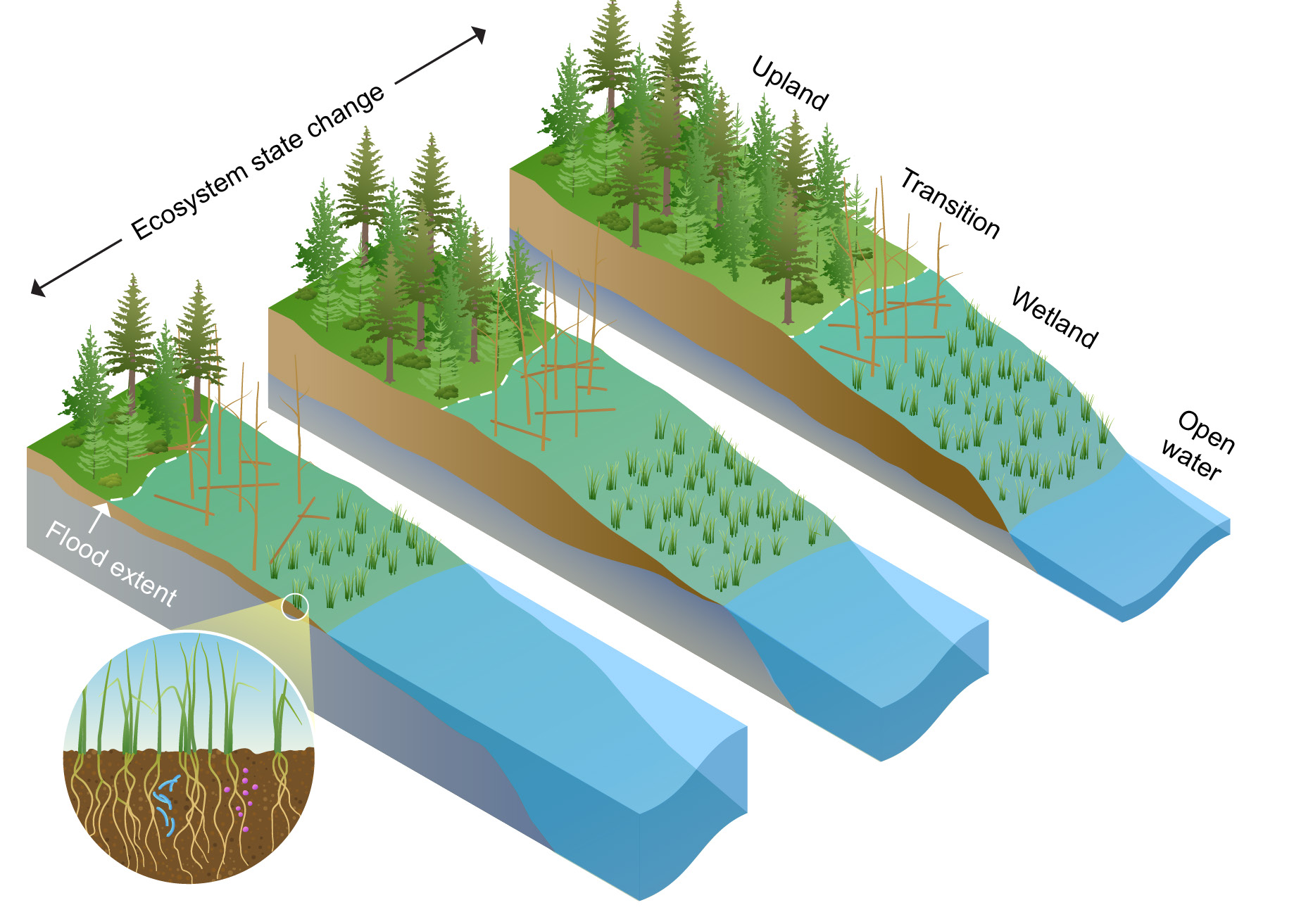Vision
The COMPASS-FME long-term vision is to capture ecosystem control points with spatially and temporally appropriate resolution, based on drivers such as sea level rise, lake-level change, and extreme events, and to predict the ensuing impacts to ecosystems. Our team is currently focused on how the frequency and duration of flood events affect TAI ecosystems, propagating through water, sediments, soils, microbes, and plants to change system states.

Through a combination of observations, experiments, and modeling, we create transferable models applicable across different study regions, with the ultimate goal of integrating this knowledge into the Energy Exascale Earth System Model (E3SM). In return, these models generate new hypotheses that can be applied to current and unstudied regions as part of the long-term COMPASS-FME endeavor.
Our overarching long-term science questions are:
- What are the fundamental ecological, biogeochemical, and hydrological control points that govern the structure, function, and evolution of coastal TAIs?
- How do these control points interact across multiple spatial and temporal scales, and what mechanisms and interactions are most important to improving predictive models that can cross scales?

Carousel Images
